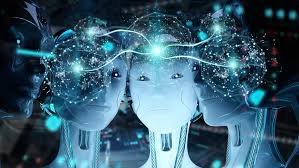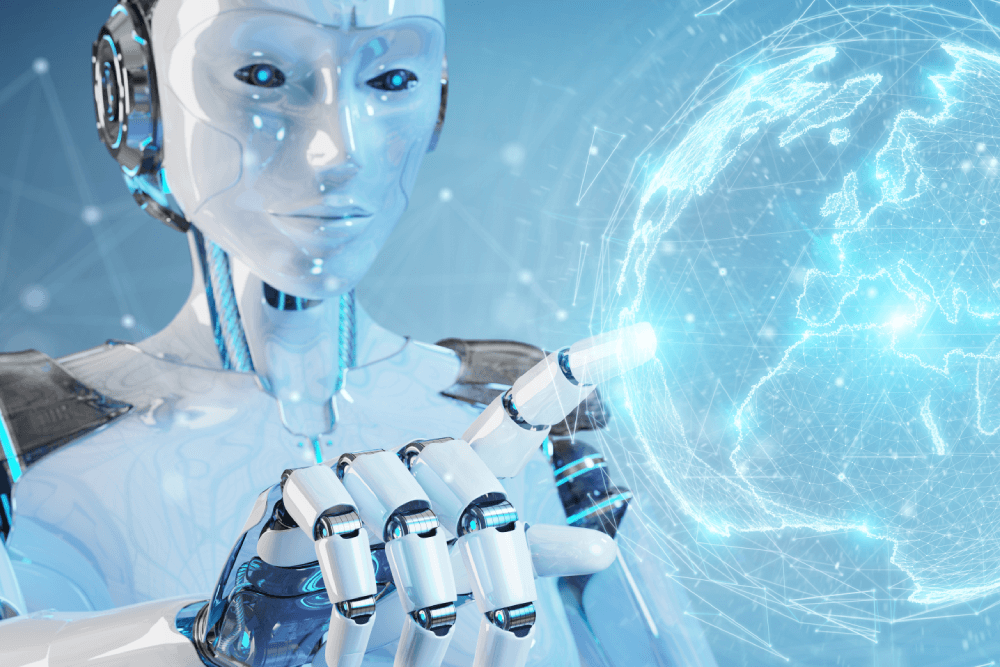Digital age, data is the new currency. Businesses, researchers, and individuals are constantly generating and collecting vast amounts of data. However, this data is often overwhelming and complex, making it challenging to derive meaningful insights manually. This is where machine learning steps in, revolutionizing the way we analyze and utilize data. In this article, we will delve deep into the world of machine learning, exploring its concepts, applications, and its potential to unlock the power of data.
Explore the Contents
- 1 Understanding Machine Learning
- 2 Applications of Machine Learning
- 2.1 Machine Learning in Healthcare
- 2.2 Financial Services and Machine Learning
- 2.3 Machine Learning in E-commerce
- 2.4 Natural Language Processing (NLP)
- 2.5 Machine Learning in Autonomous Vehicles
- 2.6 Machine Learning in Entertainment
- 2.7 Agriculture and Machine Learning
- 2.8 Machine Learning in Fraud Detection
- 2.9 Education and Personalized Learning
- 2.10 Machine Learning in Customer Service
- 2.11 Predictive Maintenance with Machine Learning
- 2.12 Machine Learning in Climate Science
- 2.13 Robotics and Automation
- 2.14 Machine Learning for Recommendations
- 2.15 Healthcare
- 2.16 Finance
- 2.17 E-commerce
- 2.18 Natural Language Processing (NLP)
- 3 The Power of Data
- 4 Challenges in Machine Learning
- 5 Conclusion
- 6 FAQs
Understanding Machine Learning
What is Machine Learning?
Machine learning is a subset of artificial intelligence that enables computers to learn and make predictions or decisions without being explicitly programmed. It involves the development of algorithms that allow computers to identify patterns, recognize trends, and improve their performance over time.
Types of Machine Learning
There are three main types of machine learning:
Supervised Learning
Supervised learning involves training a machine learning model with labeled data, where the algorithm learns to make predictions based on input-output pairs. It is widely used in tasks like image recognition and language translation.
Unsupervised Learning
Unsupervised learning deals with unlabeled data and focuses on finding hidden patterns or grouping similar data points together. Clustering and dimensionality reduction are common unsupervised learning techniques.
Reinforcement Learning
Reinforcement learning is about training models to make sequences of decisions in an environment to maximize a reward. This type of learning is crucial in applications such as autonomous robotics and game-playing AI.
Applications of Machine Learning

Machine learning has a broad range of applications across various industries:
Machine learning is a subset of artificial intelligence that enables computers to learn from data and improve their performance over time without explicit programming. It has gained prominence due to its ability to analyze vast amounts of data and make predictions or decisions based on patterns and trends.
Machine Learning in Healthcare
One of the most critical applications of machine learning is in healthcare. ML algorithms assist in diagnosing diseases, predicting patient outcomes, and optimizing treatment plans. They can analyze medical images, such as X-rays and MRIs, with remarkable accuracy, aiding doctors in making informed decisions.
Financial Services and Machine Learning
In the financial sector, machine learning is used for fraud detection, algorithmic trading, credit scoring, and risk assessment. It can process large financial datasets in real-time, helping institutions make data-driven decisions.
Machine Learning in E-commerce
E-commerce platforms leverage machine learning to enhance user experience through personalized product recommendations, chatbots for customer support, and dynamic pricing strategies. These algorithms improve customer satisfaction and drive sales.
Natural Language Processing (NLP)
NLP is a subset of machine learning that focuses on the interaction between computers and human language. It enables chatbots, virtual assistants, and sentiment analysis, making communication with machines more natural and intuitive.
Machine Learning in Autonomous Vehicles

Self-driving cars rely heavily on machine learning algorithms to navigate, detect obstacles, and make split-second decisions. This technology has the potential to revolutionize transportation and reduce accidents.
Machine Learning in Entertainment
Entertainment industries use machine learning for content recommendation on streaming platforms, character animation, and even scriptwriting. It tailors content to individual preferences, enhancing the overall viewing experience.
Agriculture and Machine Learning
In agriculture, ML assists in crop monitoring, yield prediction, and pest detection. By analyzing data from sensors and drones, farmers can optimize their farming practices and increase productivity.
Machine Learning in Fraud Detection
Banks and online retailers employ machine learning to detect fraudulent activities, such as credit card fraud and identity theft. ML algorithms can spot unusual patterns and anomalies in transactions, preventing financial losses.
Education and Personalized Learning
Machine learning is transforming education by offering personalized learning experiences. Adaptive learning platforms analyze students’ performance and adapt the curriculum to their individual needs, improving learning outcomes.
Machine Learning in Customer Service
Customer service chatbots powered by machine learning provide instant responses to customer inquiries, improving efficiency and customer satisfaction. They can handle routine tasks, leaving human agents to focus on more complex issues.
Predictive Maintenance with Machine Learning
Industries with machinery and equipment use machine learning for predictive maintenance. By analyzing sensor data, machines can predict when maintenance is needed, reducing downtime and maintenance costs.
Machine Learning in Climate Science
Climate scientists utilize machine learning to analyze climate data, predict weather patterns, and assess the impact of climate change. These insights are crucial for addressing environmental challenges.
Robotics and Automation
Robots equipped with machine learning algorithms can perform complex tasks in manufacturing, logistics, and healthcare. They can adapt to changing environments and improve efficiency.
Machine Learning for Recommendations
Machine learning powers recommendation systems on platforms like Netflix and Amazon, suggesting products, movies, or music based on users’ preferences and behavior.
Healthcare
In healthcare, machine learning helps in disease diagnosis, drug discovery, and personalized treatment plans. Algorithms can analyze medical images, predict patient outcomes, and even assist in surgical procedures.
Finance
The financial sector utilizes machine learning for fraud detection, stock market prediction, and credit risk assessment. Algorithms can quickly detect unusual patterns in financial transactions and make real-time trading decisions.
E-commerce
E-commerce platforms use machine learning to enhance user experiences through personalized product recommendations, dynamic pricing, and chatbots for customer support.
Natural Language Processing (NLP)
NLP is a field of machine learning that focuses on enabling computers to understand, interpret, and generate human language. It powers voice assistants, language translation, and sentiment analysis.
The Power of Data

Machine learning thrives on data. The more data it has access to, the better its predictions and insights become. Big data and the internet of things (IoT) have significantly contributed to the growth of machine learning by providing an abundance of data from various sources.
Challenges in Machine Learning
While machine learning offers immense potential, it comes with its own set of challenges:
Data Quality
Machine learning models heavily depend on the quality of the data they are trained on. Inaccurate or biased data can lead to flawed predictions.
Model Interpretability
Understanding why a machine learning model makes a specific prediction can be challenging, especially in complex models like neural networks.
Privacy Concerns
The collection and use of personal data for machine learning raise privacy concerns. Regulations like GDPR aim to address these issues.
Conclusion
Machine learning is transforming the way we harness the power of data. Its applications span across industries, from healthcare to finance, and its potential continues to grow as technology advances. As we move forward, it’s essential to address the challenges and ethical considerations that come with this powerful technology.
Read More: What Is Delayed Sleep Phase Syndrome?
FAQs
Is machine learning the same as artificial intelligence?
No, machine learning is a subset of artificial intelligence. While AI encompasses a broader range of technologies, machine learning specifically focuses on algorithms that allow computers to learn from data.
Can machine learning be applied to small businesses?
Yes, machine learning can benefit small businesses by automating tasks, improving customer experiences, and optimizing operations.
How can I get started with machine learning?
To get started with machine learning, you can take online courses, read books, and practice by working on projects. There are also many open-source machine learning libraries and tools available.
What industries are likely to be most impacted by machine learning in the future?
Industries like healthcare, finance, and e-commerce are expected to continue experiencing significant impacts from machine learning in the future.
What are the ethical concerns surrounding machine learning?
Ethical concerns in machine learning include data privacy, bias in algorithms, and the potential for job displacement due to automation.
Read More: Addiction Counselor Exam Secrets Study Guide
